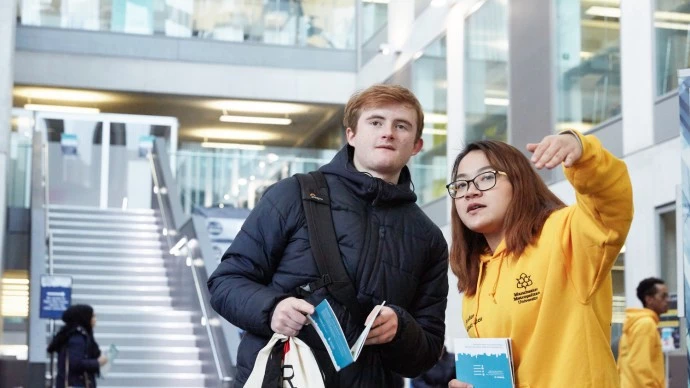
Placements, volunteering and work experience
Gain skills and experience that get you ready for the workplace - and help you stand out in a competitive job market.
components
We work hard to make sure our courses help you develop relevant workplace skills.
But there’s no substitute for real world experience – whether that is a placement, volunteering or internship.
Getting out of the classroom and into the workplace can offer an invaluable opportunity for building skills and understanding you can take into your career.
It can also help you to get a feel for what your planned career might be like – and crucially decide whether it’s right for you.
Types of undergraduate work experience
When you study at Manchester Met, you can choose the work experience that best suits your needs:
- Placements – you’ll put what you have learned into practice with a real employer. Often done alongside your taught studies as part of your course or for a few months in your holidays. May lead to other opportunities.
- Sandwich placements – you can apply for an additional placement year on many of our courses, doing real graduate-level work before completing your studies. It’s a great way to prove yourself in the job market and make useful connections at an employer.
- Internships – a fixed period of work experience, most often done by new graduates. Can help with future opportunities. Our internship scheme can connect you with a wide variety of roles.
- Part time or holiday jobs – very common with undergraduates, and can help with the bills as well as showing you’re ready for the workplace.
- Volunteering – normally with a charity or not-for-profit organisation. Our Students’ Union runs a service to help volunteers find opportunities and track their experiences. You’ll add depth to your CV, but not usually be paid.
- Shadowing – usually quite informal, you’ll observe a professional doing their work rather than getting hands on experience. But it can help you build connections and get a feel for a potential career.
Unless it’s part of a compulsory assessment, we encourage every employer we work with to pay the national minimum wage for your time.
And with professional career consultants in every faculty, you’ll always have access to expert advice and support to make sure you get the right opportunity for you.
A placement offers a nice contrast from normal studies - it's nine-to-five, so you don't need to worry about exams and the next assignment. It also helps you think about what you want to do after university - you'll realise what you are good at and what skills you have. And, whether on your CV or at an interview or assessment, it helps you stand out.
A placement offers a nice contrast from normal studies - it's nine-to-five, so you don't need to worry about exams and the next assignment. It also helps you think about what you want to do after university - you'll realise what you are good at and what skills you have. And, whether on your CV or at an interview or assessment, it helps you stand out.


